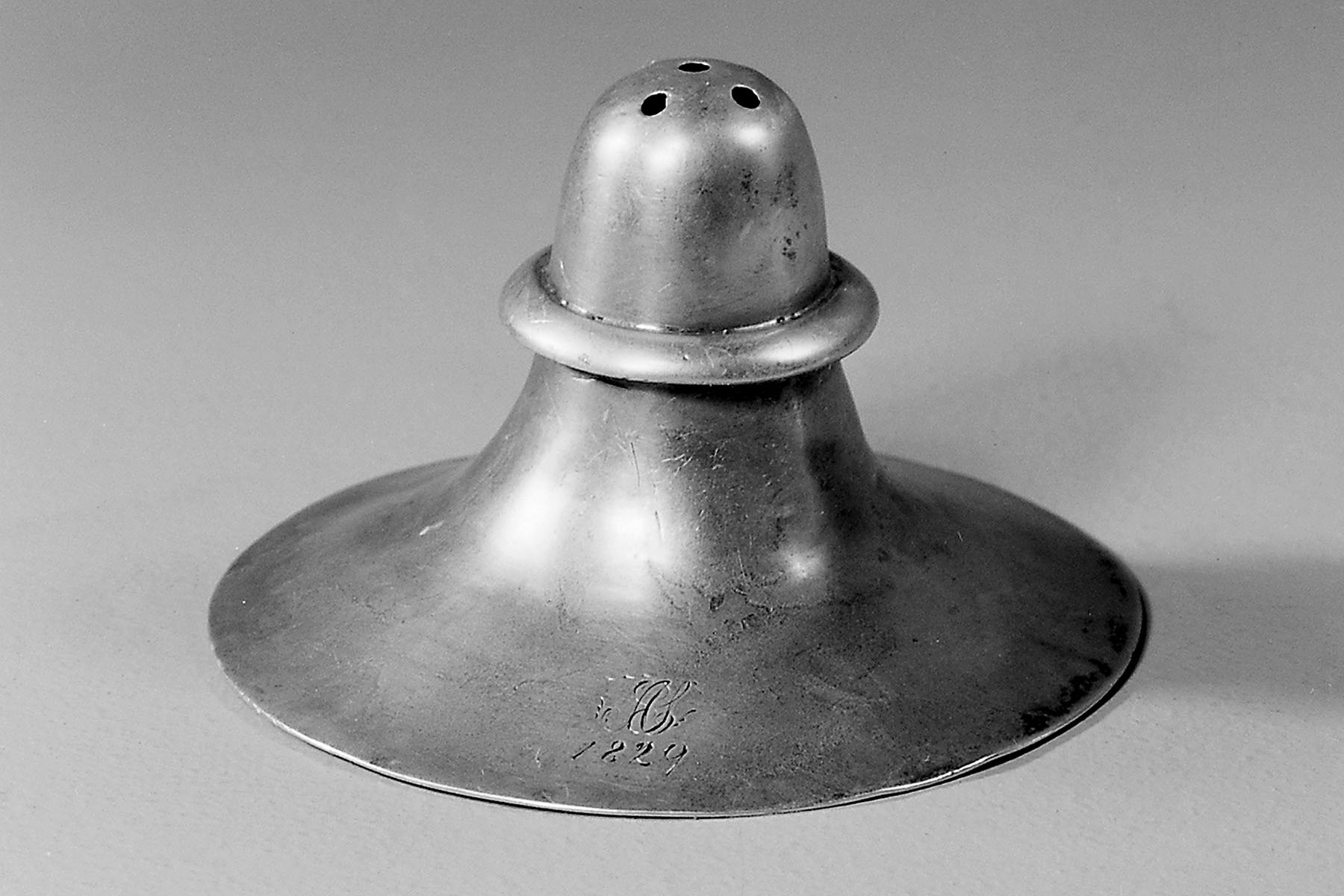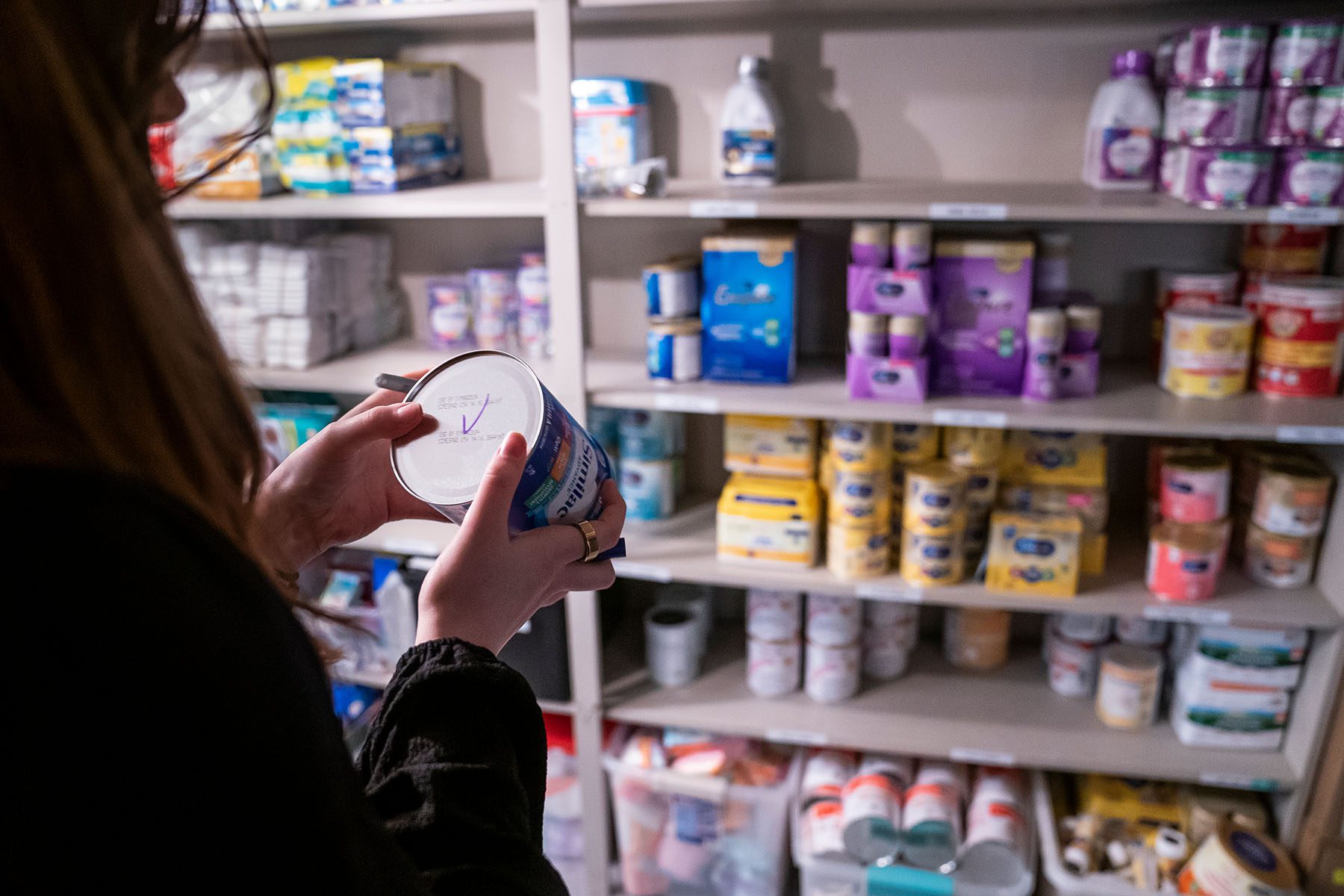Has the baby formula shortage affected you? How are you adapting to feeding without formula? What concerns do you have about the shortage? The 19th wants to hear from you.
Baby formula is in short supply across the country, and families are struggling. Amber Romero, a mother in West Des Moines, Iowa, is feeling increasingly desperate as she tries to feed her child.
“I’m a breast cancer survivor, and we’ve had to supplement with formula since I can only produce half of what my baby needs,” Romero said. “We’ve had friends give us formula that they’re not using. This morning, my husband drove to four different stores and went out of town to try to find our preferred brand of formula. He couldn’t find anything. I’m terrified that we’re going to run out of options soon.”
In January, supply chain issues slowed down distribution and then in February the largest infant formula manufacturer in the country — Abbott Nutrition — recalled three popular brands because of bacterial contamination that led to the deaths of two infants. Two senators demanded answers as the shortage left more and more parents scrambling. Last week, the Food and Drug Administration issued an update, saying it was “doing everything in our power to ensure there is adequate product available where and when [consumers] need it.” On Thursday, President Joe Biden announced additional steps his administration was taking to address the emergency.
In the meantime, parents have begun stockpiling if they can – and rationing when they can’t. Much of the burden is falling on households that need financial assistance: The White House noted that people on the Special Supplemental Nutrition Program for Women, Infants, and Children (WIC) account for about half of all infant formula purchases. Parents who work lower-income jobs often need to rely on formula more because their jobs do not allow for them to establish breastfeeding easily – assuming a parent can produce enough milk to begin with.
This cycle of family-unfriendly work and dependence on purchasing formula has deep roots in American history, and changes within the policy, society and the economic system have yet to fully address this historic inequity. The 19th spoke with Carla Cevasco, an assistant professor of American Studies at Rutgers University, about how this new crisis further highlights problems parents in America have often faced when it comes to helping infants survive those first few months.
This interview has been edited for length and clarity.
Mariel Padilla: I know you’re currently working on a book about feeding infants and children in early America. How can looking to the past as a warning help us understand this moment and how to proceed?
Carla Cevasco: I’m a historian, so I can’t tell you why the formula shortage is happening. But I can tell you that the worst-case scenario of the formula shortage is that babies die. Infant mortality rates are absolutely tied to how much food people get. It’s an issue that reflects every other inequality in our society and always has throughout American history.
There’s a version of the past in which people argue that it was like a breastfeeding utopia and everybody breastfed and it was fine. But that’s not the case. And we know this because before there was modern, commercially-available infant formula, starvation and digestive ailments were a leading cause of infant mortality for babies and toddlers because of a lack of safe alternatives to breast milk.
Modern formula is a miraculous thing. Modern formula is so key to preventing much infant mortality. Having a safe, nutritionally-complete substitute for breastmilk is a game changer. And we can’t take that likely.
Who are the people or communities that are most impacted by a baby formula shortage like this — both now and historically?
Like everything else, race and class inequities play a huge role in this. So when we talk about before the early 20th century, if a baby couldn’t have a mom’s breast milk the alternatives included a “wet nurse” — somebody else to nurse that baby. That option would have only been available to wealthier families, so wet nurses were either poor women or in many cases in the South, they were enslaved women. These women were probably then feeding their own children non-breast milk foods which were often not nutritionally complete enough to support a baby’s development. And there weren’t modern food safety standards: baby food is being served out of lead utensils or pewter utensils, which have a lot of lead in them. The result is that babies before the turn of the 20th century who were fed non-breast milk foods died at much higher rates than babies who got breast milk.
Those race and class inequities continue to today. Women of color are much less likely to have access to paid family leave, so they’re not breastfeeding at the same rates that wealthier White women are. That means they’re reliant on the formula supply. Many women have to go back to work within two weeks of giving birth, typically in service occupations, and they are disproportionately women of color. These inequities keep happening. The very women who are most likely to be reliant on the formula supply are so reliant on it in part because the rest of society is stacked against them. Saying “just breastfeed” ignores the economic and social realities that are disproportionately facing a lot of women of color.
-
Share your story with us:
-
Share your story with us: Parents: How has the baby formula shortage affected you?
What is something that you think many people misunderstand about why this shortage is detrimental to new parents and their infants?
I wrote a Twitter thread because there were people saying on social media, “Oh, maybe this will get more people to breastfeed” or “Why aren’t they just breastfeeding?” And so I wanted to say that the United States relies particularly on formula compared to other developed countries that have better parental leave and more support for new parents — but at the same time, there have always been and there will always be people who need formula. People might struggle with breastfeeding for a variety of reasons and maybe their child has specific nutritional or allergy needs.
People in the past also struggled with breastfeeding. When I started researching this stuff, I was shocked at how many of the issues with breastfeeding that people describe today are also described in the past. Even today, people have talked to me about their lactation consultant recommending silver nipple shields because it’s anti-inflammatory. And I can show you the pictures of these nipple shields from 300 years ago that are in museums. People have struggled with breastfeeding for a variety of reasons. Sometimes the birthing parent has low supply or mastitis, which in the pre-antibiotic era could kill you, or they died in childbirth and were not around to breastfeed. Babies can also struggle with breastfeeding if they’re premature or have a cleft palate.

As a historian, I don’t want to see people trying these old, homemade formula recipes going around on social media. My mom has the formula recipe that went home with her when she was a baby in the 1950s — but we don’t want to revive these homemade formulas from the past because a lot of this stuff was not necessarily safe or nutritionally complete in the long term. So that’s a nightmare scenario.
What can be done to help those who need it the most?
It’s pretty clear that if there were more paid parental leave, there would be higher breastfeeding rates, people would be able to initiate breastfeeding and keep it up for longer and they’d have the time to be home and bond with their baby. But that still might not work for everybody. Even if the United States were an absolute utopia for new parents, there would still be people who need formula or who struggle with breastfeeding. There’s the rhetoric that, “well, breastfeeding is free,” which makes me wonder, why do we have to pay for formula? In a just world, formula would be something that you would get with a prescription from a pediatrician.
On a local, more collective level, people are looking out for each other and donating breast milk. These are things that people have done for each other to take care of each other’s children all throughout history. Friends and neighbors and family members would nurse each other’s children to help in informal ways.
I think that we should re-examine how the United States supports — or frankly doesn’t — new parents in this country.







